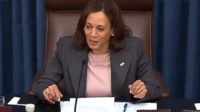Despite uncertainty in an election year, the U.S. made the top 10 for the first time in a biannual ranking of 41 global markets for infrastructure investment potential, says the survey author, Holland-based design firm Arcadis. The U.S. ranked No. 8 this year from No. 11 in 2012, while higher business risk pushed Australia to No. 11 from No. 9 and market shrinkage dropped Saudi Arabia to No. 15 from No. 12.
“The U.S. economy is in better shape now with more certainty from federal legislation, [and] we’re in a lower-risk environment,” says Wassim Selman, infrastructure president of Arcadis North America, Highlands Ranch, Colo. “While European and Asian markets have experienced greater instability, both economically and from a security standpoint, the U.S. is ripe for financial investment in large infrastructure.” But the U.S. still lags in public funding and private investment, “despite new strategies and technologies that can produce more from every investment dollar spent,” he says.
The study, completed before the U.K. Brexit vote to leave the European Union, assessed each nation’s investment lures, including the ease of doing business, tax rates, GDP per capita, government policy, existing infrastructure quality and availability of debt finance. The top five countries for investment are Singapore, Qatar, the UAE, Canada and Malaysia, while Pakistan, Egypt, Greece, Argentina and Venezuela ranked lowest. But Selman says four of the top 10—the UAE, Canada, Malaysia and Norway—have a “higher short-term risk,” signaling better investor opportunities in infrastructure operations and maintenance than in construction.
Impacts on British infrastructure investment from the June 23 Brexit vote will be unclear for months. In a statement, Arcadis noted first-quarter growth in its U.K. sectors but saw a slowdown in London private building work “due to investor uncertainty.” In a June 29 analysis, U.K. industry publication Building foresaw delays for big infrastructure projects, such as the HS2 high-speed rail, and said that a “more immediate worry” is the effect of “the sharp depreciation of the pound against the euro” on construction costs.





Post a comment to this article
Report Abusive Comment